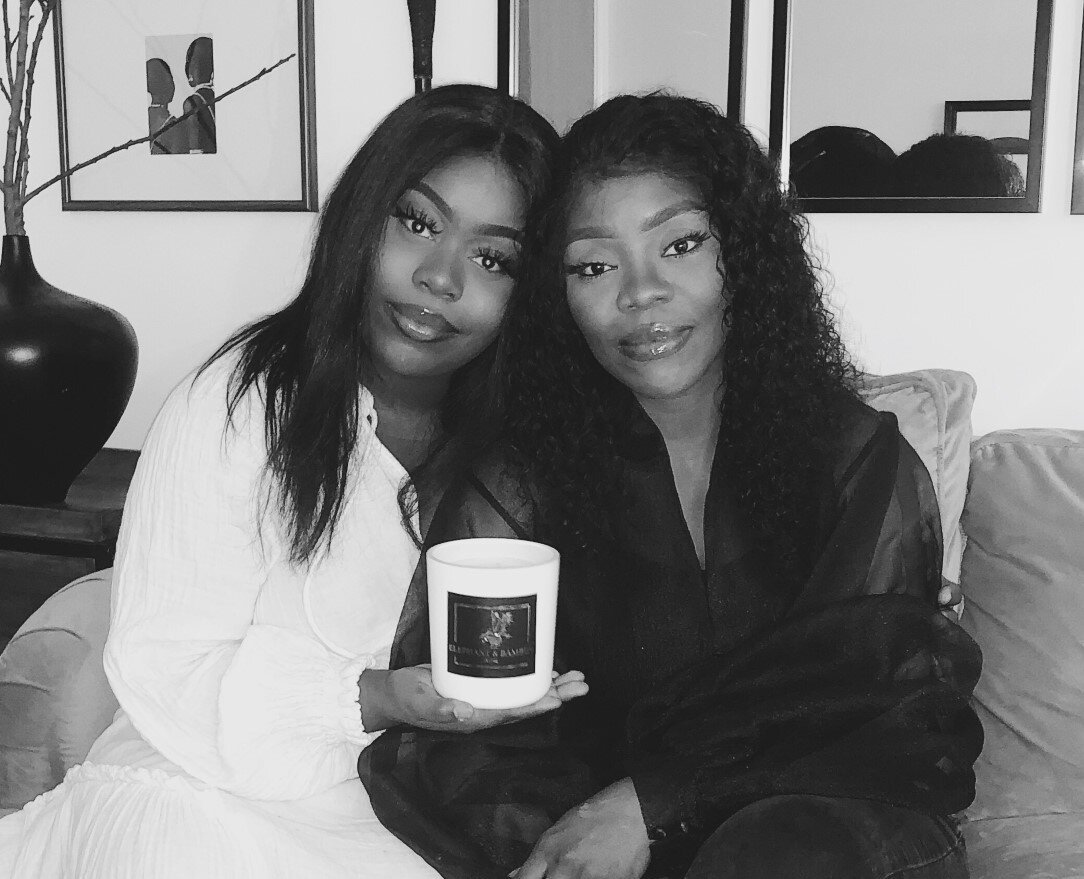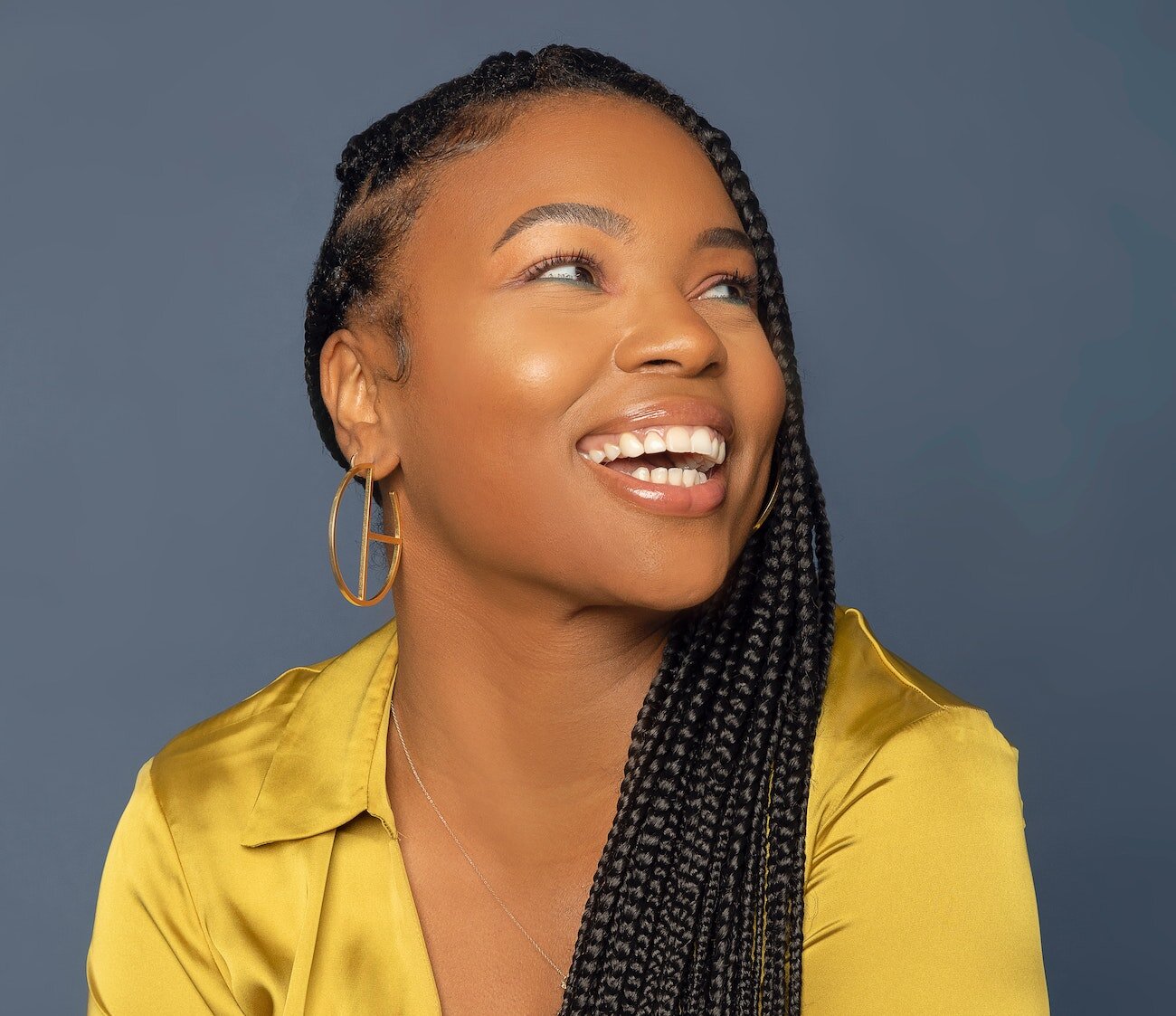Mothers and daughters go together like bread and butter, but what is it like running a business with such a close member of your family? We speak to four Mother and daughter Black-owned beauty brand owners.
SuperFoodLx
When Paula began to experience hair loss her mother Cherry created an oil blend for her which went on to become their Illuminism Pomegranate Butter. SuperfoodLx was established in 2013 and what started out as a mother helping her daughter solve a hair loss problem turned into a business. They now have a range of haircare and CBD products. The rise of the BLM Movement allowed them to compare their experiences with other black-owned companies and they quickly realised the marginalisation that was occurring in terms of retail opportunities. So, what’s like working with your mum? Paula says although there are generational differences and like any business partnership or team you have to have an understanding of each other’s strengths and weaknesses and know how to utilise and respond to them efficiently.
SisRoot
When Ruth decided to transition from chemically-straightened hair to her natural texture, she decided to make her own products. As time passed her hair began to change and grey hairs came through, so once again she revised her hair regime. At the time there was a lack of good quality chemical-free hair and body products available, so Ruth’s daughter, Leynna-Jay encouraged her to start a business. Ruth’s experience of creating quality products matched with Leynna-Jay’s knowledge of PR which meant a winning team and Sis Root was established. They learn from each other on the job - Ruth has learnt about social media and Leynna-Jay is learning about the formulas. SisRoot has a range of personal care products which are suitable for all skin and hair types. However, the challenge is getting beyond the misconception that Black-owned brands are only for the black community. That said, there was an increase in business due to the BLM Movement and Black Pound Day but Leynna-Jay believes spending in the community shouldn’t be limited to a dedicated day. There are no days off for her and Ruth, but the perk is being able to spend time together.
Okiki Skincare
In 2016, Ade sadly lost her mother and in a bid to stay connected to her, she began making soap to pay homage. Ade’s own daughter, Antonia knew her mother’s products were good and she wanted to assist in upscaling the business, so they joined forces. They began to work on making the products more sustainable and plant based. They have clear roles. Ade looks after the finances and formulas while Antonia looks after the marketing. Their roles actually reflect their personalities, Ade is quite private and Antonia is open and chatty. Working together, they have learnt to compromise. Their range now includes personal and home care products. Working together on Okiki is a bonding experience, they have dinner together after a hard day’s work and pamper days on the weekends. The downside is that there are no days off. It’s not always been smooth sailing; they have experienced lack of recognition at trade markets. At one particular event the market organiser took images of all the stalls but avoided theirs. Antonia says there’s also no access to grants. However, on a positive note they noticed in the midst of the BLM protests that journalists were looking for Black-owned brands to feature and Okiki has benefited from this by appearing in a variety of media outlets.
Elephant & Bamboo
Elephant & Bamboo is a luxury home fragrance brand that creates environmentally friendly candles, diffusers, tea lights and wax melts. The brand was created because both Mum, Bibiche and daughter, Christia have a passion for interiors. Their aim was to create a brand that would allow them to showcase their heritage and love for all things interior through sustainable home products. It was a natural fit for Bibiche and Christia to work together because they are very close; they have fun together outside of work and have grown closer because of their working relationship. Elephant & Bamboo was established just over six months ago; similar to the other entrepreneurs, starting the business was not a problem - the challenge lay in sourcing funding and networking opportunities to grow the business. BLM and Black Pound led to the brand having more visibility and a great day in terms of sales.










